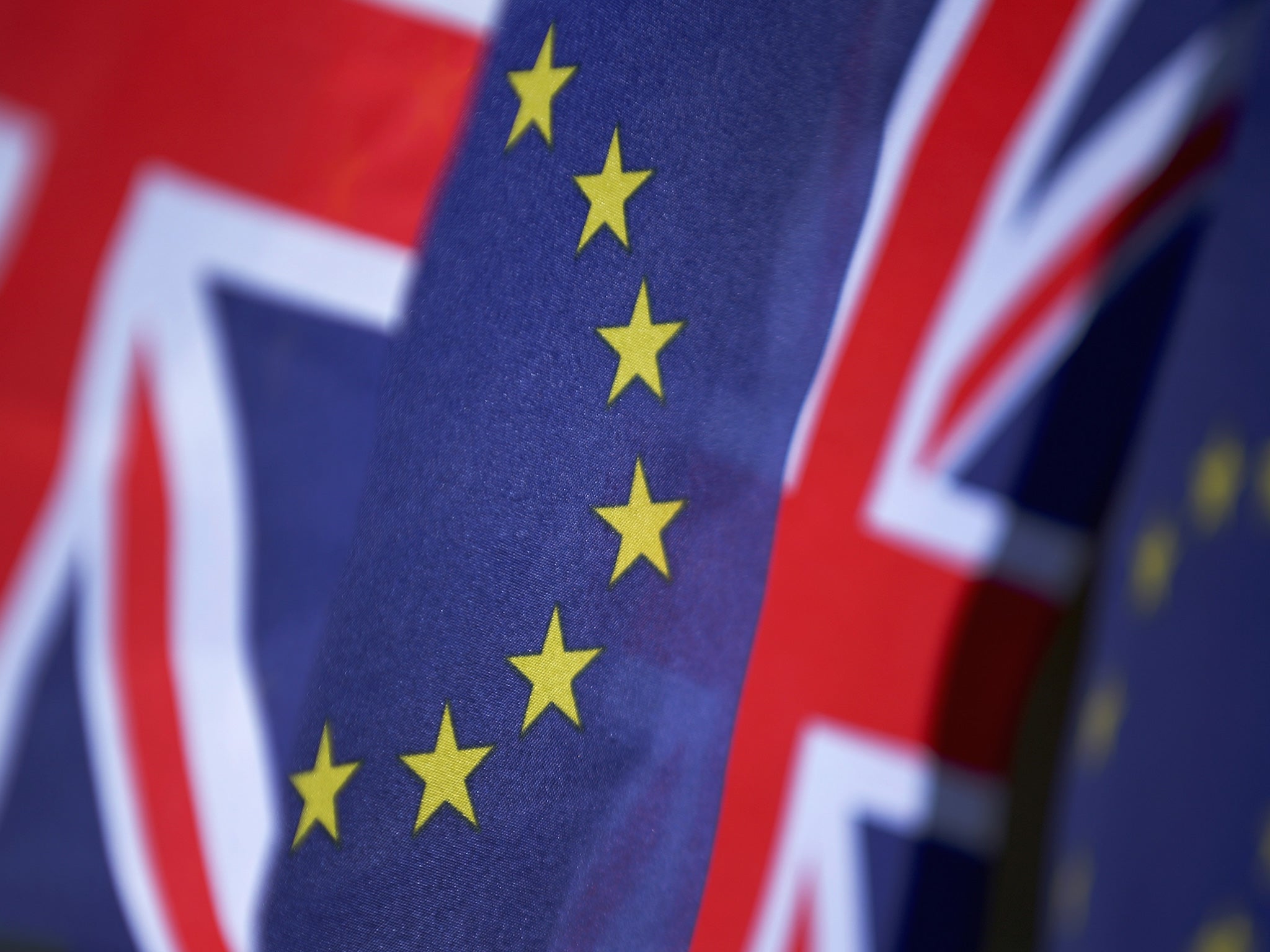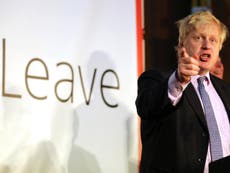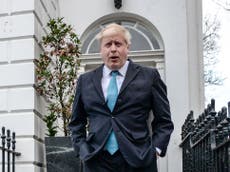Boris Johnson and his fellow Outers might still decide to use their most dangerous weapon
With a Remain victory looking more likely by the day, could the Brexit camp promise a second referendum?


The people running the campaign to keep Britain in the EU hope they are slowly but surely grinding their way to victory in the June referendum. If they do, it will be another example of “the economy, stupid.” The consequences of Brexit spelt out by the Treasury, the International Monetary Fund and the OECD, plus Barack Obama’s warning that Britain would go to the “back of the queue” for trade deals with America, paint a bleak picture of life outside the EU. The message will be repeated a thousand times before 23 June. “The drip, drip effect on the economy will prevail in the end,” said one leading figure in the In camp.
Although the opinion polls are still on a knife edge, some in the Out campaign believe they need a game-changer to counterbalance the weight of economic evidence stacked up against them. They are talking more about immigration than they intended, judging that they need to play their best card. But it may not be enough.
Dominic Cummings, the campaign director of Vote Leave, has long believed it has a silver bullet in its locker – promising that, if the public votes to quit the EU, there would be a second referendum on the exit terms negotiated with the other 27 members. Such a pledge, if made by a leading Outer like Boris Johnson or Michael Gove, would transform the current referendum campaign. For voters worried about a “leap in the dark”, it would de-risk a vote to leave, and could easily tip the balance in the Outers’ favour in June. It might force our EU partners, desperate to stop demands for In/Out referendums spreading, to make concessions to Britain. After all, Ireland and Denmark both held a second referendum after rejecting an EU treaty and winning further safeguards.
Cummings wrote on his blog last year: “It may be easier to portray Yes as riskier if people know there will be a second referendum….It enables No to make a No vote much less risky. ‘If you vote Yes, you won’t get another vote for 40 years – if ever. You should vote No to Cameron’s rubbish deal.’ ” He argued that, as a matter of democratic accountability, people should vote on exit terms that would be a far bigger deal than a general election.
Johnson has hinted at such a strategy. When he declared himself an Outer in February, the Mayor of London wrote: “There is only one way to get the change we need, and that is to vote to go, because all EU history shows that they only really listen to a population when it says No.”
But a few days later, Johnson made a swift EU-turn after David Cameron said there could be “no turning back” on an “irreversible” vote to leave in June. The Prime Minister would immediately invoke Article 50 of the Lisbon Treaty, setting in train two years of negotiations with the 27 other EU members on the UK's exit terms. Of course, it suits Cameron to make an Out vote as risky as possible, so he would be mad to leave open the prospect of a second referendum. Allies insist there is a more fundamental reason. “No prime minister could just defy the wishes of the people; that is cloud cuckoo land,” one said. Johnson now concedes that “Out is Out,” saying a second referendum would not be necessary because Britain could strike a series of trade deals around the world.
Why are the Outers reluctant to fire their nuclear weapon? De-risking the referendum would also carry huge risks. As Cameron has ruled out a second vote, the Outers would have to oust him and install one of their own. Cummings hinted at this, writing: “If you vote No, you will force a new government to negotiate a new deal and give you a new vote.”
Cameron’s enemies would need only 50 Tory MPs to trigger a vote of confidence in him as party leader. Getting 50 names would not be a problem. But Cameron allies insist he has the numbers to see off such a challenge. So more blood would have been spilled in vain, making the already difficult task of healing the Tories’ referendum wounds even harder. If the coup failed, it could backfire on the perpetrators, making it easier for Cameron to portray them as a bitter rump of yesterday’s men he would leave behind as he resumes his One Nation legacy agenda. If a Johnson/Gove promise of a second referendum were seen as part of a failed leadership coup, it could backfire on them. As things stand, the two Outers are likely to move up the Cabinet ladder in a “reconciliation reshuffle” Cameron would carry out after winning the referendum. But if they have fired their silver bullet and missed, he might be unforgiving.
However, a promise of a second referendum under a new leader is still an attractive option for some Vote Leave campaigners. If the polls point to a clear win for Remain, there is an outside chance the nuclear option could be put back on the table, providing a dramatic final twist to the referendum drama. This show is not over yet.



Join our commenting forum
Join thought-provoking conversations, follow other Independent readers and see their replies